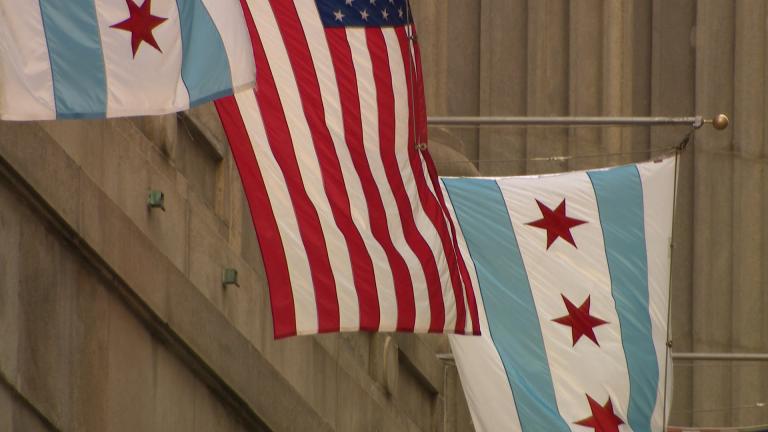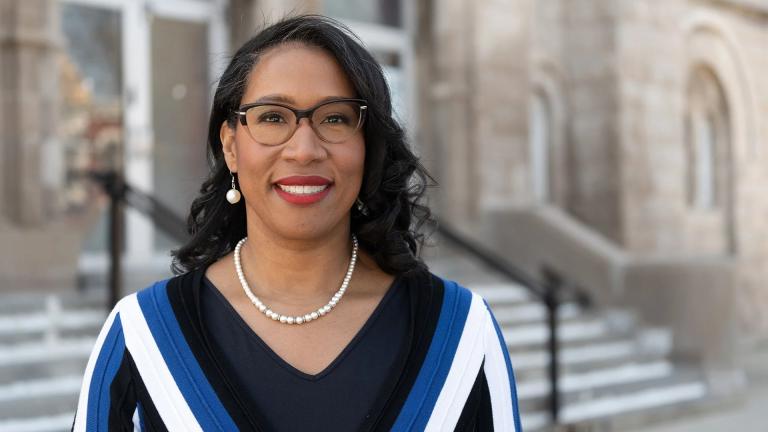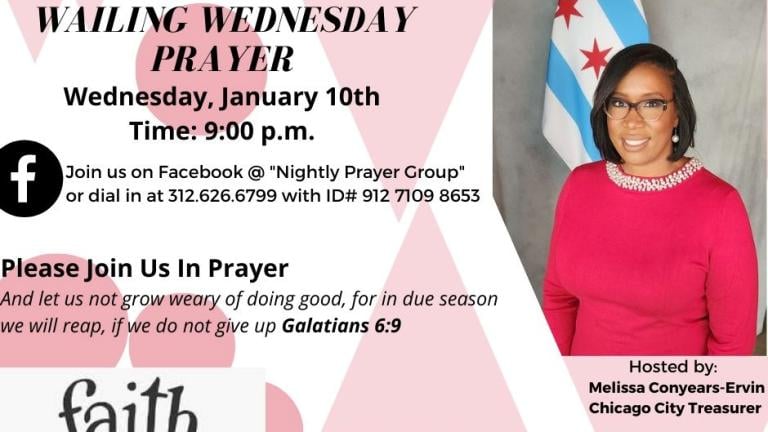A proposal to overhaul Chicago’s ethics rules amid a continuing cascade of federal probes has stalled without the support of Mayor Lori Lightfoot, who was elected in 2019 after vowing to root out the corruption that has led to the conviction of 37 members of the Chicago City Council since 1969.
The proposal crafted by Ald. Michele Smith (43rd Ward), chair of the City Council’s Ethics and Government Oversight Committee, and the Chicago Board of Ethics would hike the maximum fine for violating the city’s ethics ordinance from $5,000 to $20,000 as part of an effort to grapple with Chicago’s seemingly intractable legacy of graft and mismanagement.
Cesar Rodriguez, the mayor’s press secretary, said Wednesday the mayor’s office needed more than six and 1/2 hours to respond to a detailed list of questions about Smith’s Ethics reform proposal, which has failed to advance in the two months since its introduction.
The measure’s prospects for approval — and what could be officials’ last shot at ethics reform before the 2023 municipal election — appear uncertain at best after Lightfoot instructed her allies on the City Council to use a parliamentary maneuver during the May 25 City Council meeting to prevent Smith from holding a hearing on the proposal this month.
After that meeting, Lightfoot said she “didn’t know anything about” the proposal in response to a question from WTTW News.
“I’ve never seen it, I haven’t read it, we were not consulted on it,” Lightfoot said.
Smith, who was tapped by Lightfoot more than two years ago to lead the newly created committee charged with fulfilling Lightfoot’s central campaign promise of ending corruption at City Hall, told WTTW News on Tuesday she was flummoxed by the mayor’s actions and statements.
“It was very surprising,” said Smith, who said she generally has a good relationship with the mayor, who has repeatedly clashed with other members of the City Council. “I don’t know why you would do that, I really don’t.”
Shortly after the proposal was blocked from advancing for the second City Council meeting in a row, Smith left her seat in the City Council chambers and spoke briefly with Lightfoot on the rostrum.
Smith told WTTW News she asked Lightfoot why she had moved to block her ethics proposal in such an unusual and highly public manner, especially since the two have been allies for more than three years.
Lightfoot’s response was noncommittal, but she was “very aware” of the proposal’s details, Smith told WTTW News.
“I don’t willy nilly go off and do something,” Smith said, adding that she consulted with nearly all members of the City Council, and briefed the mayor’s staff charged with reviewing ordinances introduced to the City Council.
It is not clear why Lightfoot denied knowing anything about a proposal Smith had brought to her attention earlier that day and that she had directed her allies to block from a hearing.
“The mayor appointed me ethics chair to try to turn around the perception of a lack of ethics in our city and on our City Council,” Smith said, adding that she was trying to fulfill that charge and had been proud to stand alongside Lightfoot during the push. “We have made tremendous progress.”
Smith typically votes with the mayor on high-profile issues, including her annual budget proposals as well as her recent push to expand and extend the city’s teen curfew. But the North Side alderperson was one of seven members of the City Council to vote against Lightfoot’s pick of Bally’s to build a casino along the Chicago River in River West.
Smith voted against it because of concerns it would reverse years of progress the city and nonprofit groups have made in restoring the river’s natural habitat.
“I asked the mayor if it was payback for voting no on the casino,” Smith said. “She said it wasn’t.”
Ethics Board Chair William Conlon and Executive Director William Conlon told WTTW News they remain fully in support of the proposal, which would be the second major overhaul of the city’s Governmental Ethics Ordinance in nearly three years.
If passed, the law would benefit everyone in Chicago by offering “clear guidance” on what constituted ethical behavior, Conlon said.
Smith shepherded Lightfoot’s most significant ethics reform package through the City Council, helping the mayor notch a win early in her administration.
The City Council voted 50-0 in July 2019 to overhaul the city’s ethics laws by giving the inspector general the authority to investigate alderpeople and committees by hiking the fine for violations from $2,000 to $5,000. That measure also banned members of the City Council from working as property tax attorneys — a provision that was aimed squarely at indicted Ald. Ed Burke (14th Ward).
But those changes were less far reaching than originally proposed by the Ethics Board, and Lightfoot promised more reforms were in the works. However, that issue has fallen nearly completely off the mayor’s agenda amid the continuing COVID-19 pandemic and a public safety crisis that sent violent crime to the highest levels in nearly 25 years.
It is also unclear why Lightfoot would not support Smith’s proposal in an election year and use it as an opportunity to burnish her credentials as a reformer.
In addition to hiking the fines for ethics violations, the measure would expand the number of companies doing business with the city that would be limited to contributing $1,600 to any one candidate per year to include subcontractors earning more than $10,000 within 12 months, as well as those doing business with the city’s sister agencies such as Chicago Public Schools.
In addition, the measure would expand the city’s rules against nepotism to prevent city officials or employees from taking any action that benefits their domestic partner or relatives and prohibit firms from hiring relatives of city officials to skirt the rules, according to the proposal.
The proposal also takes aim at the way the City Council operates, and would ban former alderpeople who work as lobbyists from the floor of the Council Chambers. That provision appears directed at former Ald. Joe Moore (49th Ward) who works as a lobbyist and has been a frequent presence at meetings since his defeat in 2019.
The proposal would also require aldermen physically leave the council committee room during discussions and votes on issues where they have an interest and have recused themselves. A similar change proposed by the Ethics Board in 2019 was defeated.
Contact Heather Cherone: @HeatherCherone | (773) 569-1863 | [email protected]





